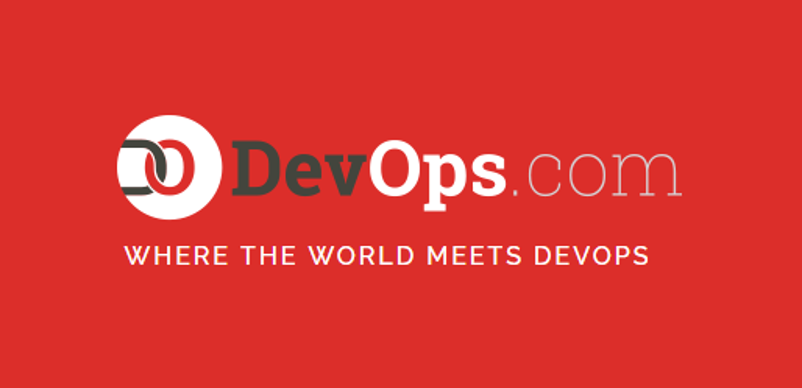#technical-debt
#technical-debt
[ follow ]
#legacy-systems #software-development #ai-adoption #automation #generative-ai #vibe-coding #scalability #devops
Artificial intelligence
fromZDNET
1 week agoStuck in AI pilot mode? IBM has a solution to help you scale - without ripping everything up
IBM Enterprise Advantage combines platform and consulting to integrate, scale, and deploy enterprise AI atop existing clouds, models, and infrastructures without replacing core systems.
fromLogRocket Blog
2 weeks agoA developer's guide to designing AI-ready frontend architecture - LogRocket Blog
Frontends are no longer written only for humans. AI tools now actively work inside our codebases. They generate components, suggest refactors, and extend functionality through agents embedded in IDEs like Cursor and Antigravity. These tools aren't just assistants. They participate in development, and they amplify whatever your architecture already gets right or wrong. When boundaries are unclear, AI introduces inconsistencies that compound over time, turning small flaws into brittle systems with real maintenance costs.
Artificial intelligence
fromLogRocket Blog
1 month agoFixing AI-generated code: 5 ways to debug, test, and ship safely - LogRocket Blog
AI tools often produce code that compiles and runs, but contains subtle bugs, security vulnerabilities, or inefficient implementations that may not surface until production. AI systems also lack a true understanding of business logic. They often create solutions that seem to work - but hide issues that aren't found until later. As developers are building solutions, the AI will most frequently cover common solutions but fail on edge cases.
Software development
fromMedium
2 months agoStop Rewriting Your Elasticsearch Code Every Version Upgrade
You open your IDE and realize that 40% of your codebase needs to be rewritten. The RestHighLevelClient you've been using? Deprecated. Your carefully crafted queries? Breaking changes. Your bulk operations? Different API. Welcome to the Elasticsearch version upgrade treadmill - where every major version means days (or weeks) of refactoring, testing, and praying nothing breaks in production. Sound familiar? You're not alone.
Software development
fromInfoWorld
2 months agoAWS Transform now supports agentic modernization of custom code
Amazon Web Services is aiming to reduce it with the addition of new capabilities to AWS Transform, its AI-driven service for modernizing legacy code, applications, and infrastructure. "Modernization is no longer optional for enterprises these days," said Akshat Tyagi, associate practice leader at HFS Research. They need cleaner code and updated SDKs to run AI workloads, tighten security, and meet new regulations, he said, but their inability to modernize custom code quickly and with little manual effort is one of the major drivers of technical debt.
Software development
Software development
fromAmazon Web Services
2 months agoIntroducing AWS Transform custom: Crush tech debt with AI-powered code modernization | Amazon Web Services
AWS Transform custom automates and scales language and framework modernization, reducing execution time by up to 80% and freeing developers from repetitive technical debt work.
Information security
fromTechzine Global
2 months agoCisco boosts phase-out of insecure legacy with new initiative
Cisco is retiring insecure legacy features and enforcing secure-by-default configurations across networking platforms to defend against AI-driven attacks and prepare for post-quantum cryptography.
fromtrevorlasn.com
2 months agoGood Enough Is a Strategy
Your competitors aren't building perfect code either. If you spend 6 months building the theoretically perfect architecture, they'll ship something "good enough" in 2 months and eat your lunch. You'll have beautiful code that nobody uses. Tech debt is the cost of moving fast enough to win. The biggest risk in software isn't technical debt-it's being irrelevant. Markets move fast. User needs evolve. Competitors iterate. While you're refactoring for the third time to achieve "clean architecture," your competitor is talking to users, learning what actually matters, and shipping features that solve real problems.
Software development
fromMarTech
2 months agoHow AI could make your next DXP migration actually work | MarTech
Six months into your DXP migration, the project was scrapped - budgets blown, timelines missed and loads of technical complexity nobody saw coming. Now you're stuck paying for a platform that isn't delivering as your marketing backlog grows. Product sites wait months to launch, campaigns stall and regional teams plead for localized content that won't ship until next quarter. Meanwhile, your developers spend 78% of their time maintaining systems instead of improving them. You're afraid to try again - and that fear costs you every quarter.
Marketing tech
fromSitePoint Forums | Web Development & Design Community
3 months agoAI assistance is only making programmers dumb, lazy and dangerously prone to replacement
What happened with AWS outage recently is only a brief foreshadow of what might eventually come to pass if this trend continues. Imagine a world where most programmers are primarily LLM prompters with a very shallow understanding of core programming skills or even operational skills pertaining to an app, framework or library. What will we do if a major outage or technical issue occurs then and no person around knows what's really going on?
Artificial intelligence
Software development
fromInfoQ
3 months agoTransforming Primary Care: A Case Study in Evolving From Start-Up To Scale-Up
Applying domain-driven principles and deliberate architectural boundaries restores control and prevents organic technical decay that turns clean systems into tangled dependency webs during product evolution.
Fundraising
fromNon Profit News | Nonprofit Quarterly
3 months agoWhy Nonprofit Control of Information Technology Matters - Non Profit News | Nonprofit Quarterly
Nonprofits' underinvestment in IT creates technical debt, increasing dependence on private vendors and risking mission effectiveness and financial stability.
fromNon Profit News | Nonprofit Quarterly
3 months agoHow Private Equity Extracts Profit from Social Safety Net Systems - Non Profit News | Nonprofit Quarterly
Take the old example of Ross Perot: Before he was a presidential candidate, he made his fortune producing welfare forms for the federal government. Today, this dynamic has evolved into sophisticated disaster capitalism, where public benefit systems create ideal conditions for private equity extraction that devastate both vulnerable communities and nonprofits.
US politics
fromLogRocket Blog
3 months agoGoodbye, messy data: An engineer's guide to scalable data enrichment - LogRocket Blog
In any enterprise application, user-provided data is often messy and incomplete. A user might sign up with a "company name," but turning that raw string into a verified domain, enriched with key technical or business contacts, is a common and challenging data engineering problem. For many development teams, this challenge often begins as a seemingly simple request from sales or marketing. It quickly evolves from a one-off task into a recurring source of technical debt.
Software development
fromTheregister
4 months agoLegacy tech blunts UK top cops' fight against serious crime
"The NCA recognizes and understands the problems these legacy IT systems present. A lack of investment in IT infrastructure means the NCA is burdened with technical debt - that is, the increasing cost of replacing outdated systems when fast solutions have been prioritized over long-term solutions," the report said. The watchdog argues that the NCA has also been slow to fully embrace the benefits of cloud-based technology, which has adverse practical consequences.
Information security
fromFast Company
4 months agoThe vibe coding hangover is upon us
Coinbase CEO Brian Armstrong was the recipient of some very bad vibes last week after bragging on X that nearly half his exchange's code is already AI-generated, with plans to push it higher. The post unleashed a torrent of ridicule, and seemed to crystalize the skepticism over the reliability of "vibe coding" tools that's been bubbling for months.
Artificial intelligence
fromBusiness Matters
5 months agoWhy Building Your Own Stripe Is a Trap (And How White-Label Saves Startups Millions)
Every startup founder dreams of control. Building a sleek payment system in-house feels bold, innovative and even empowering. After all, Stripe began as a small project - why not follow the same path? The idea of owning every detail of the payment experience can be intoxicating. But behind that dream lies a reality few anticipate: endless complexity, hidden expenses and a dangerous distraction from the core product.
Startup companies
fromBusiness Matters
5 months agoWhy your IT systems feel slower every year and what it's really costing you?
Slower systems aren't always a hardware issue. In fact, performance problems often stem from how your systems have evolved - layer by layer, fix by fix. Over time, even the best platforms become tangled in complexity, weighed down by technical debt, and held back by outdated design. Let's break down the key culprits behind why your IT infrastructure feels heavier each year.
Software development
fromTalkpython
5 months agoAgentic Al Programming with Python
Agentic AI programming is what happens when coding assistants stop acting like autocomplete and start collaborating on real work. In this episode, we cut through the hype and incentives to define "agentic," then get hands-on with how tools like Cursor, Claude Code, and LangChain actually behave inside an established codebase. Our guest, Matt Makai, now VP of Developer Relations at DigitalOcean, creator of Full Stack Python and Plushcap, shares hard-won tactics.
Software development
fromFast Company
5 months agoTech debt isn't an 'IT issue.' It's a business strategy
Every CEO knows the feeling of promised features taking months longer than expected, simple changes breaking unrelated systems, and top engineers fighting fires more than they build the future. Welcome to technical debt: the detritus of yesterday's innovation that increasingly blocks progress today. The crucial reality is that tech debt isn't an "IT issue"-it's a business strategy problem that directly impacts your bottom line, competitive positioning, and organizational resilience.
Software development
Artificial intelligence
fromComputerWeekly.com
7 months agoAI Summit London: Managing legacy IT and the pace of AI development | Computer Weekly
80% of AI proof-of-concept projects fail to progress to production stages.
Technical debt and existing IT infrastructure pose significant challenges in leveraging AI for businesses.
Software development
fromHackernoon
2 years agoGood Programmers Always Be Refactoring | HackerNoon
Clean code is essential for maintainability and reduces technical debt.
Engineers should prioritize refactoring alongside feature development.
Refactoring can be integrated into regular code updates subtly.
[ Load more ]













